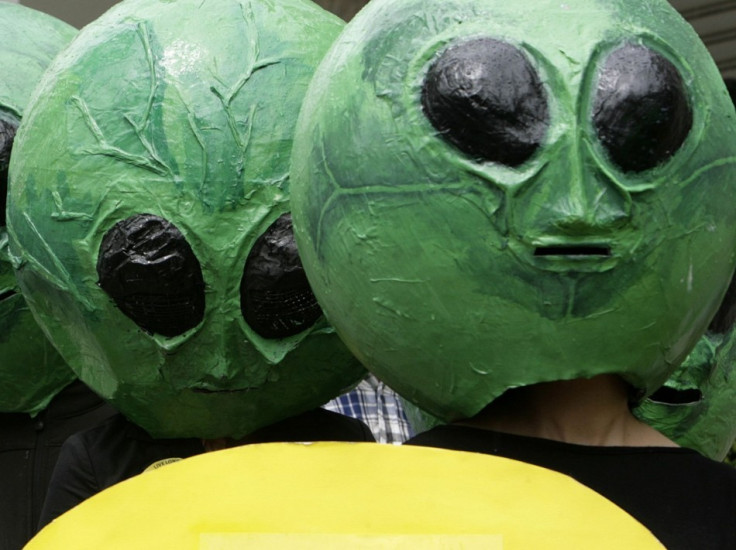NASA: Aliens Might Destroy Humanity to Protect Other Species

NASA scientists are warning we should curb our greenhouse gas emissions in order to prevent aliens from attacking us, according to a new paper reported by The Guardian.
The reports suggest that if extraterrestrials learn we are sending out large amounts of greenhouse gases and altering the climate, they may decide to eliminate us to prevent us from damaging our planet further.
In "Would Contact with Extraterrestrials Benefit or Harm Humanity? A Scenario Analysis" (pdf), scientists from NASA's Planetary Science Division and Pennsylvania State University focus on three potential types of contact we could have with aliens: beneficial, neutral and harmful.
The 33-page paper depicts some scenarios in which contact would be beneficial, including cases where aliens would help us acquire better knowledge and help us solve problems such as hunger, poverty and enable us to eliminate diseases. Another scenario exposed is also an alliance between humans and Aliens to help us protect ourselves from an attack by other extra-territorial beings.
The neutral scenarios, on the other hand, involve situations in which aliens do not try to communicate with us and prefer to observe us without making any contact.
The harmful scenario, on the other hand, are a bit more dramatic as NASA scientists warn aliens could attack us, enslave us, eat us or spread alien diseases among us or among crucial food species, to destroy us.
The reports also note that they might also decide to conduct some kind of apocalyptic physics experiment that makes part of the galaxy uninhabitable.
To prevent these disasters from happening and risk destroying humanity and its future, the document suggest we refrain from sending signals into space, and insist we should especially diminish broadcasts that would provide the potential extraterritorial visitors with information about our biological makeup.
Such information, scientists warn, could enabler the attackers to create weapons of mass destruction.
Moreover, not respecting our environment could anger aliens, the report warns, and they could as a result become suspicious of humanity because our rapid expansion could prove a threat to other species that live on Earth.
In case of an attack, the document points out that a pre-emptive strike is the most likely to take place in the early phases of our expansion as destroying a civilization in its later stage of development might be too difficult.
Finally, the NASA researchers conclude their paper saying that even if contact between human beings and aliens is never made, analysing these scenarios is still useful as it pushes us to conceptualise and imagine the future of humanity.
© Copyright IBTimes 2025. All rights reserved.





















